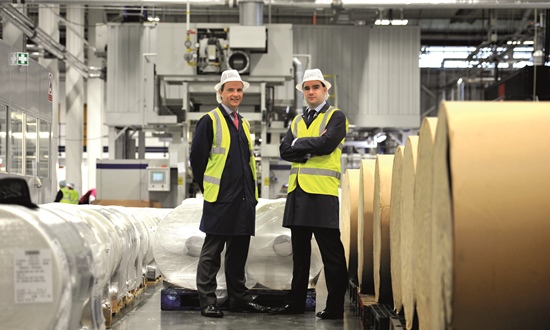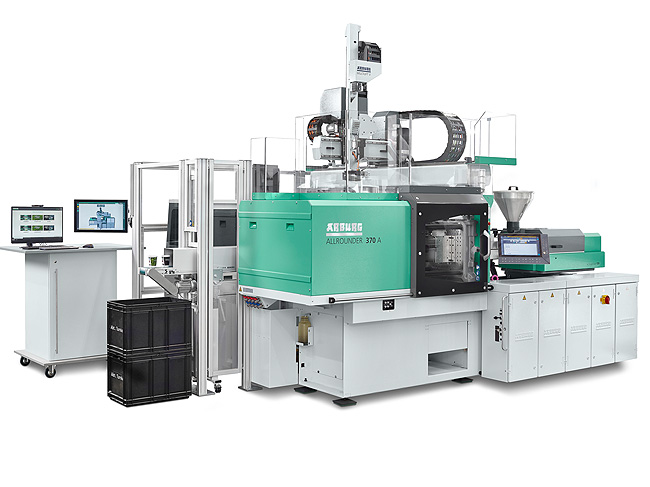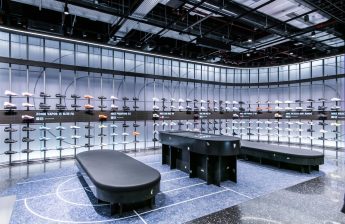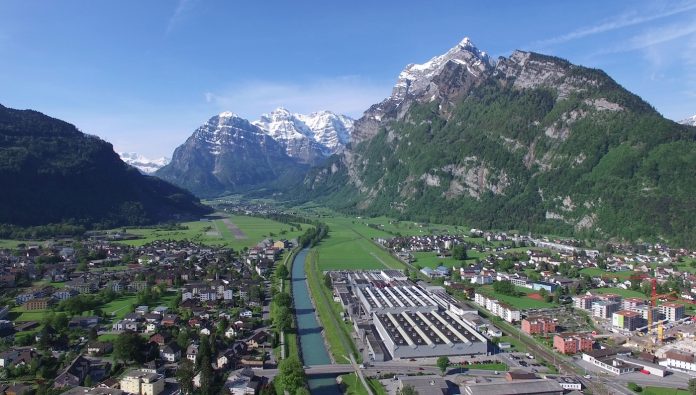Leeds-based UK flexible packaging giant Roberts Mart is continuing its expansion as it competes as an independent family business.
The £45m turnover company employs 230 staff, and constant investment is part of the growth strategy, with over 95% of the business serving the UK.
Roberts Mart has historically served the home textiles market– particularly duvet packaging. Since the move to its purpose-built site in 2004, the company has increased its expansion to other sectors: snacks, confectionery, dry fruit, cereals, pet food, frozen food, soft drinks and bottled water.
William Roberts managing director at Roberts Mart, said: “We have branched out to more food snacking and drinks, and we had to move to get the necessary accreditations – this building was specked to the BRC manual! It was a step change for the business in 2004. We were turning over about £10m and employing 120 staff. We are now forecasting over £50m next year with about 230 staff. It’s been a gradual, year-on-year growth”
He explained that a slitting machine that has been ordered is a £1m investment, was solely purchased on the back of a new contract with a new customer for frozen foods.
The company has been growing about 10% per annum: “That’s £4.5m extra/new business we need to find every year!”
The site is currently expanding, with building work progressing. The existing warehouse will be moved into a new 55,000 square foot extension to free up space for more production to facilitate additional investments in the coming years.
The extension work is set to be completed by May 2024.
William Roberts said: “We are also trebling the size of our ink kitchen which will allow us to pump ink direct to the five presses saving time, labour and waste.”
He added that some of the recent investments include eight flexo printing presses (since 2004), four laminators (including two combi laminators for applying cold seal and coatings), eight slitters, four bag machines, one pouch machine, three polythene film extruders, one polythene recycling line, building and process improvements, new IT systems, and the building expansion.
“A press from Allstein is due to be operational in March 2024 – the Rolls Royce of flexo printing presses – and we will be the first company in the UK to have three of their presses.”
Sustainability
Ben Roberts explained that the company uses about 175 tons a month of recycled pellets from its extrusion division: “Our in house film extrusion expertise has allowed us to develop over 40 different blends for different applications including from 30-100% recycled plastics some of which we are able to reprocess internally. We typically use about 2,200 tonnes of recycled resin a year. A lot of these film blends are now viable recyclable replacements of traditional mixed plastic unrecyclable materials.
“We also have a range of heat sealable papers designed to run on conventional packing lines. These materials are an alternative to plastics and can be supplied with barrier properties which are achieved using our coating expertise. In particular they have excellent barrier to gas, moisture and grease.”
Around 18 months ago the company invested in a recycling machine. “We are reprocessing all our internal clean polythene waste. We can put it back into similar blends to what it was in the first place. We will try to use all our polythene trims and recycle them to produce waste disposable bags for NHS garments – we try to find an outlet for our waste.”
Plastic tax
Ben Roberts said the plastic packaging tax is “probably more an administrative headache” as much as anything else. The majority of customers switched to recycled materials where they can.
“Anything direct food contact is still a massive issue for the flexible packaging trade.” He added that for non-food contact some of the big retailers hit their overall sustainability and recycled content targets by using 100% recycled packaging on non-direct food contact products such as duvets.
“As 30% is the minimum requirement and probably the sensible, economical and practical level to put it in. There has got to be the right volume of suitable material in the system to make it viable.
“This year virgin material prices dropped so much – it was arguably cheaper to pay the tax and not put any recycled material in. However, most of our customers have made commitments to use more recycled material and set specific targets often linked to the Plastics Pact. This has also meant rebranding their packaging to highlight the inclusion of recycled materials.”
William Roberts added: “The Plastic Packaging Tax is now over £210 per tonne – that will inevitably slowly start creeping up. If virgin material is cheaper to purchase than recycled materials then there becomes a stage where the recycling companies will perhaps cease to exist as they cannot remain competitive.”
Consolidation
William Roberts said with independent competitors there has been consolidation, and some site closures, with senior managers in the industry retiring.
“But we are doing OK. We have brought in four new customers just in the last few weeks as a result of some the changes of ownerships.”
He added that the company has been looking out for prospective acquisitions: “We have come close a few times. Now we have some free space at our site with the expansion, so something can be moved in to it. It is just about finding the right match. There are a few big firms that left the UK, and now, following Brexit, they need a base back in the UK. But we are confident. Next year we expect more opportunities in the growing snack market amongst other sectors.”
2024
Next year Roberts Marts plans to invest in its film extrusion site, to get more capacity and more advanced machinery.
“In the coming months we have plans to strengthen our position in various existing core markets but also to develop new markets particularly with the development of our new range of recycle ready mono material pouches which are all fully made in house and the development of our new home compostable mono materials which we will be looking to develop as exports for the Australian market where there is high demand for these types of materials,” said William Roberts.
“We have also just invested in new laser technology for scoring films with various options including vents for microwaveable applications and/or tear lines for easy open and reseal applications. Another development is the investment in a new Videojet printing solution which allows us to print unique individual promotional codes on the inside of packaging for competitions or consumer offers.”









